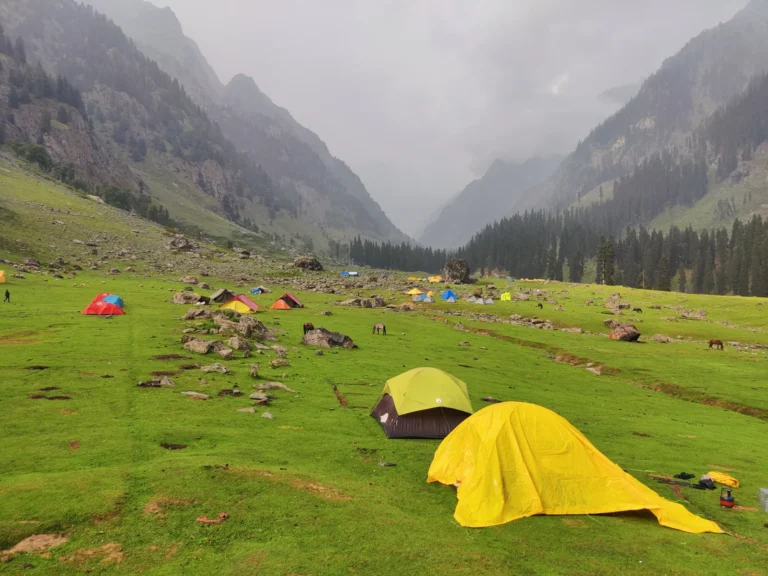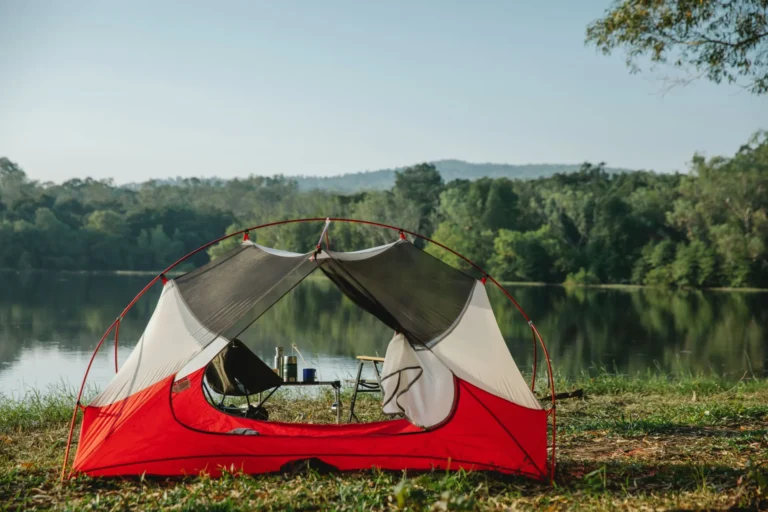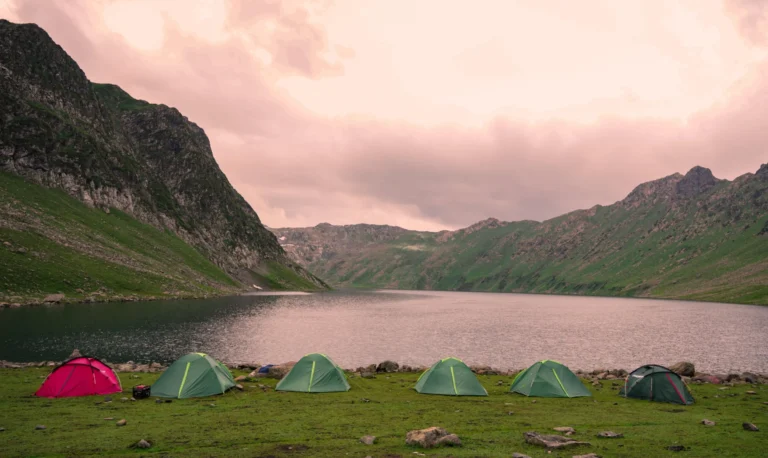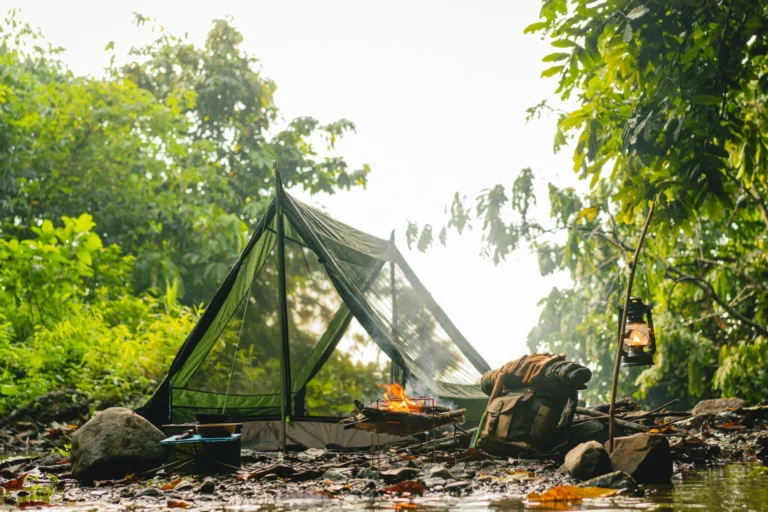A common concern among hikers just starting out is how much their first tent should weigh. Because choosing the right weight for the hiking tent can play a key role in making your experience comfortable and astonishing. The availability of plenty of hiking tents with different weight limits and types makes choosing the right one challenging.

This article takes a deep dive into the question of how heavy should a hiking tent be and the factors you need to consider when deciding on the weight of your hiking tent. We’ll also provide valuable tips which can help you choose the best hiking tent according to your needs. So, let’s get started and explore the best strategies for choosing the ideal weight for your hiking tent.
How heavy should a hiking tent be?
When it comes to the weight of hiking tents, the most important thing is the number of people. Of course, a one-person hiking tent weighs less than two- and three-person tents. And when selecting the ideal hiking tent, this principle is kept in mind. So, how heavy should a hiking tent be for one person, two people, or three people?
As a general principle, a one-person hiking tent should weigh between 2.5-3 pounds. While two-person and three-person hiking tents should weigh up to 5 and 8 pounds respectively. And don’t forget – the weight of your tent hinges on the materials it’s built with. A tent made with heavier, more durable materials will naturally weigh more than one made with lighter materials.
Additionally, you’ll want to consider the features and functionality of your tent. A tent with more bells and whistles will generally weigh more than a more basic model.You don’t want a tent that is difficult to transport or that could easily be destroyed by a strong wind.
Look for powerful hiking tents in terms of weight and functionality when you’re looking for one.So, look for tents that combine brains and muscles in the ideal proportion. And when choosing the appropriate tent, don’t forget to consider your group size.
Factors That Affect the Weight of a Hiking Tent
Be careful to consider the factors that may have an impact on the weight of the tent when making your selection for a hiking excursion. and must know about how heavy my tent should be for backpacking.
Below are some key factors that affect the weight of a hiking tent:
1) Material
The materials used in the tent’s construction will have a considerable impact on its weight. Tents made with heavier, more durable materials will naturally weigh more than those made with lightweight materials.
2) Design
The design of the tent can also play a role in its weight. Tents with a more complex design, such as those with multiple rooms or vestibules, will typically weigh more than simpler designs.
3) Size
The size of the tent is another important factor to consider. A larger tent will naturally weigh more than a smaller one, so pick the proper size for your group.
4) Features
The number of pockets, windows, and entrances in a tent has been something that might determine how heavy it is. Tents with more features will generally weigh more than those with fewer features.
5) Seasonality
The seasonality of the tent is another important consideration. Let’s say you’re looking for a winter-worthy tent – chances are, it’s going to weigh more than a summer-style shelter.
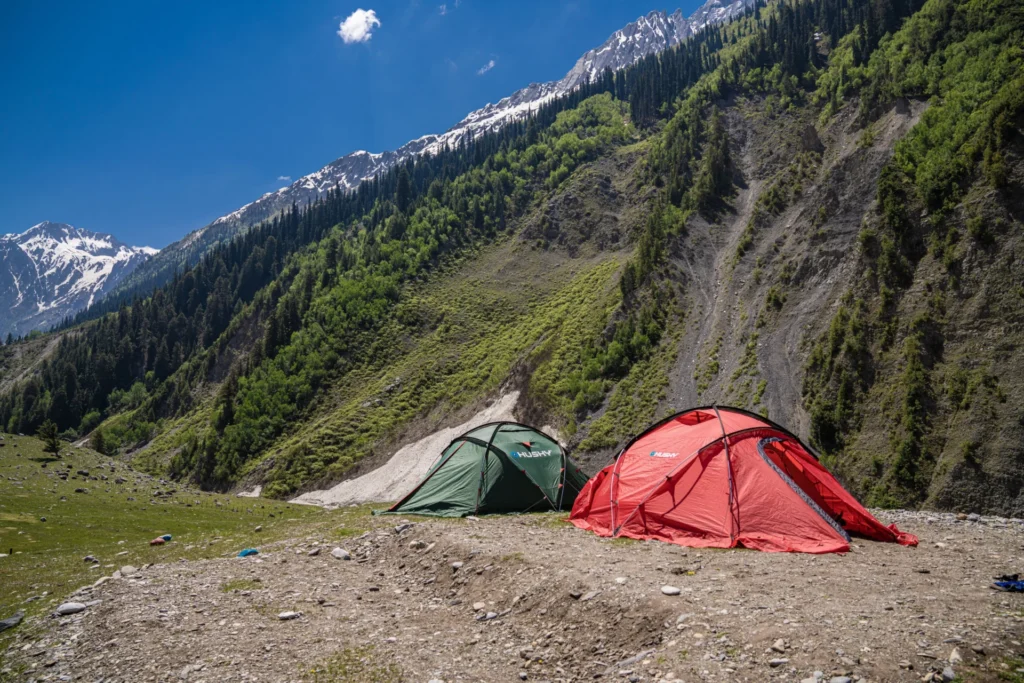
6) Brand
Finally, the brand of the tent can also impact its weight. Some brands may use lighter or heavier materials than others and may have different design philosophies that result in lighter or heavier tents.
Be sure to research the brands you’re considering to get a better sense of their approach to tent design and construction.
How to Choose the Right Hiking Tent?
Sometimes choosing an ideal hiking tent can be a bit challenging. When selecting the ideal hiking tent, keep the following factors in mind:
1) Determine Your Needs
The first step in choosing a hiking tent is determining your needs. How many people can the tent accommodate? What kind of weather can you expect? And how heavy should a tent be for backpacking? Are you going to go vehicle camping or backpacking? Before selecting the ideal hiking tent, you must answer these important questions.
2) Think About Your Budget
It’s critical to think about your budget when purchasing a hiking tent. You have to choose a good quality tent according to your budget. If your budget is high, you can go for better quality and more functional hiking tents.
3) Choose the Right Size
Size matters when it comes to choosing a hiking tent. You need a tent that’s roomy enough to fit everyone and their stuff without being a pain in the neck to haul around. Before pulling the trigger on your tent purchase, factor in the size of your squad and the amount of gear you’ll be schlepping.
4) Look For Lightweight Hiking Tents
If you want to know how heavy should a backpacking tent be, You must know that lightweight material is always easy to carry and use, so you must choose a lightweight option for your tent. Hiking with a bulky tent is a drag.
5) Consider the Seasonality
The seasonality of the tent is another important consideration. Winter camping requires a tent that can handle chilly winds and freezing temperatures. Meanwhile, summer camping demands a well-ventilated tent that keeps you cool as a cucumber.
6) Check the Features
It’s important to check the features of the tent before making a purchase. Look for features like multiple doors, vestibules, and gear storage pockets to make your camping experience more comfortable and convenient.
7 ) Consider the Material
The material of the tent is another important consideration. Tent materials have unique pros and cons, so select one that fits the bill. For instance, nylon or polyester are great choices for waterproofing when camping in damp conditions.
8) Look For easy-to-set-up
Pitching a tent can be a pain, especially when you’re bushed after a grueling hike. Look for tents that are easy to set up and take down, with simple pole systems and intuitive designs.
9) Check the Durability
You don’t want to blow your cash on a tent that falls apart after a couple of uses. Hunt for tents built with durable materials and sturdy construction, so you can rest assured your investment will go a long way.
10) Read Reviews
Make an informed decision before pulling the trigger on a new tent purchase by checking out reviews from other hikers. Look for feedback on the specific features in which you are interested and any cons of the tent. With these tips, you’ll be able to track down the ultimate hiking tent that fits the bill.
Conclusion
Hiking tents should balance weight and comfort. Your tent’s weight depends on its size, seasonality, material, and design. Choose a tent size based on your group size and gear, without compromising weight. The season you’ll be camping in affects the tent’s weight and the features you need. Winter tents should withstand cold temperatures and strong winds, while summer tents should be well-ventilated.
Waterproof materials like nylon and polyester are essential in wet conditions. Pitching a tent can be a pain, especially when you’re exhausted after a lengthy hike. Look for tents that are easy to set up and dismantle. Finally, to enjoy your outdoor adventure without weight, choose the hiking tent that meets your needs after considering all these factors. Now that you know the answer to “How heavy should a hiking tent be?” you can plan your adventurous hiking trip accordingly.




